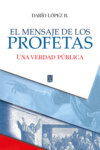Kitabı oku: «The Political History of England – Vol XI», sayfa 18
THE MONROE DOCTRINE.
What, however, rendered French interference hopeless was the attitude of the United States, as expressed in President Monroe's historic message to congress on December 2, 1823. In this message occur the words, since known as the Monroe doctrine: "With the governments who have declared their independence, and maintained it, and whose independence we have, on great consideration, and on just principles, acknowledged, we could not view any interposition for the purpose of oppressing them, or controlling in any other manner their destiny, by any European power, in any other light than as the manifestation of an unfriendly disposition towards the United States." After this the recognition of the independence of the Spanish colonies was only a matter of time.82 Great Britain recognised the independence of Buenos Ayres, Colombia, and Mexico, in 1824, and the rest soon after. In spite of the temporary successes of Canterac, Peru, the last of the mainland provinces, was lost to Spain in 1825, and the other European powers did not now delay their recognition of the American republics. In April of that year France recognised the virtual independence of her own revolted colony of Hayti.
The Eastern question advanced more slowly. On March 25, 1823, Canning recognised the Greeks as belligerents. After this step Great Britain enjoyed the advantage of being able to hold the Greek government responsible for piracy committed by Greek ships; but, coming as it did after the isolated action of Great Britain at Verona, it created a suspicion among the eastern powers of a desire to effect a settlement of the Eastern question without the co-operation of other states. In October, 1823, the Tsar Alexander and the Emperor Francis had a meeting at Czernowitz in Bukowina. Here they discussed joint intervention in Greece as a means of forestalling the isolated intervention of Great Britain. During the meeting the news arrived of the Turkish concessions to the Russian demands of 1821. Before the conference broke up, the tsar informally suggested a conference at St. Petersburg to arrange joint intervention on the basis of the erection of three principalities under Turkish suzerainty in Greece and the Ægean. In January, 1824, the same proposal was made formally in a Russian circular addressed to the great powers. Metternich and Canning both opposed the scheme, thinking that the principalities would fall under Russian influence.
Metternich met it by a counter proposal for the complete independence of Greece. Canning preferred to adopt neither course, and to watch the sequence of events. In April, however, he consented that Great Britain should be represented at the conference at St. Petersburg on condition that no coercion should be applied to Turkey, and that diplomatic relations should have been previously restored between Russia and Turkey; in August the Greek government sent to London its protest against the Russian proposals, and in November Canning, finding that neither Greeks nor Turks would accept the decision of the conference, and being still opposed to violent interference, refused to take part in it. At the same time he offered British mediation to the Greeks in case it should be absolutely necessary. Early in 1825 Metternich induced Charles X., the new King of France, to support his proposal. Russia, however, would not hear of the independence of Greece, which might mean the creation of a rival to her influence in the Turkish dominions. The conference therefore merely resolved that the Porte should grant satisfaction to its subjects, failing which the powers offered their mediation.
THE DEATH OF ALEXANDER I.
Turkey refused the offer. She was in fact busily engaged in restoring order in her own way. In February, 1825, an Egyptian army was landed in the Morea, and met with rapid successes of such a nature as to arouse a suspicion that it was the fixed policy of its commander, Ibrahim, the adopted son of Mehemet Ali, Pasha of Egypt, to depopulate the Morea. His advance upon Nauplia was checked by an order of the British commodore, Hamilton, and he retired towards Tripolitza and Navarino. The Turkish successes induced Canning to make proposals to Russia through Sir Stratford Canning, the British ambassador at St. Petersburg, for a joint intervention of the powers on condition that there should be no coercion of Turkey. The tsar refused to accept the condition and made preparations for war. Canning meanwhile declined an offer of the Greek government to place itself under British protection, and on August 18 Alexander declared that he would solve the Eastern question by himself. He then set out for the south of Russia, where his army had collected. Canning now dropped his scheme of an united intervention and opened negotiations for a separate intervention on the part of Great Britain and Russia alone. Meanwhile he informed the Greek government that he would allow no power to effect a settlement without British co-operation, and that if Russia invaded Turkey he would land troops in Greece. The negotiations with Russia were proceeding favourably when they were interrupted by the death of Alexander on December 1.
One event of the year 1825 which attracted little attention at the time was destined to be a cause of friction at a much later date. In 1824 the boundary between British America and the United States had been partially delimited, and this was followed early in the following year by a treaty, which attempted to settle the boundary between British and Russian America. Unfortunately the words used in this treaty were somewhat indefinite, and, although no difficulty was experienced for two generations, the discovery of gold in the north-west of America subsequently led to a bitter dispute between Canada on the one side and the United States, which had acquired the rights of Russia, on the other.
CHAPTER XI.
TORY DISSENSION AND CATHOLIC RELIEF
The sudden illness of Liverpool in February, 1827, disclosed the dualism and mutual jealousies which had enfeebled his cabinet. One section, represented by Canning, advocated catholic emancipation, encouraged the practical application of free trade doctrines, and was prepared to support the principle of national independence, not only in South America, but in Greece and Portugal. This section was dominant in the house of commons. The other section, led by Wellington and Peel, which was dominant in the house of lords, was strictly conservative on all these questions, though Peel was beginning to show an open mind on one, at least, of them. The king's known distrust of Canning, largely shared by his own party, naturally suggested the hope of rallying it under the leadership of some politician with the moderate and conciliatory temper of Lord Liverpool. But no such politician could be found, nor was there any prospect of Canning accepting a subordinate position in a new ministry. For nearly six weeks the premiership was in abeyance, while Liverpool's recovery was treated as a possible event. Canning himself was in broken health, but, ill as he was, he proposed and carried in the house of commons a sliding scale of import duties upon corn, variable with its market price. He also made a fierce attack on Sir John Copley, then master of the rolls, who had vigorously opposed a motion of Burdett for catholic relief. At last the king, having consulted others, made up his mind to send for Canning, who had been suffering from a relapse. It was in vain that Canning advised him, unless he were prepared for concession on the catholic question, to summon a body of ministers sharing his own convictions. There was, in fact, no alternative to Canning's succession, except that of Wellington or Peel. The former declared that he would be worse than mad to accept the premiership; the latter was still young for the office and deprecated as hopeless the formation of any exclusively "protestant" cabinet. The selection of Canning became inevitable, and on April 10 the king determined upon it, irritated by what he regarded as an attempt to force his hand in the choice of a minister.
CANNING ACCEPTS OFFICE.
From that moment, during the short remainder of his life Canning had to undergo the same bitter experience as Pitt in 1804, and to suffer a cruel retribution for his aggressive petulance. All his strongest colleagues, except Huskisson, deserted him. The resignation of Lord Eldon, since 1821 Earl of Eldon, must have been expected, terminating, as it did, the longest chancellorship since the Norman conquest. But Canning seems to have really hoped that he might secure the support of Wellington by the assurance of his desire to carry out the principles of Liverpool's government. The duke, however, repelled his overtures with something less than courtesy, and even retired from the command of the army. Peel had already intimated privately that a transfer of the premiership from an opponent to a champion of emancipation would make it impossible for him to retain office. Three peers, Bathurst, Melville, and Westmorland, followed his example. Canning had no resource but to enlist colleagues from the ranks of the whigs. In this he was at first unsuccessful. Sturges Bourne was appointed to the home office, Viscount Dudley became foreign secretary, and Robinson, who was raised to the peerage as Viscount Goderich, became secretary for war and the colonies. Canning himself united the offices of first lord of the treasury and chancellor of the exchequer. The Duke of Portland became lord privy seal. Palmerston, the secretary at war, was given a seat in the cabinet. Harrowby, Huskisson, Wynn, and Bexley, retained their former posts, and Sidmouth, hitherto an unofficial member of the cabinet, finally retired. One important office outside the cabinet, that of chief secretary for Ireland, was given to a whig, William Lamb, afterwards Lord Melbourne. It was a happy idea to make the Duke of Clarence lord high admiral without a seat in the cabinet, and without any power of acting independently of his council, while Copley (as Lord Lyndhurst) proved a good successor to Eldon.
In May some of the whigs were induced to join the ministry. Tierney entered the cabinet as master of the mint and the Earl of Carlisle as first commissioner of woods and forests. The Marquis of Lansdowne, the former Lord Henry Petty, joined the cabinet without taking office. Other minor posts were assigned to whigs, and several whig chiefs, such as Holland and Brougham, while they remained outside the government, tendered it a friendly support. In July Lansdowne became home secretary, Bourne was transferred to the woods and forests department, Carlisle became lord privy seal, and Portland remained in the cabinet without office.
The new cabinet was therefore still in an unsettled state when it met parliament at the beginning of May. It there encountered a storm of unsparing criticism even in the house of commons, but still more in the house of lords. Lord Stewart, who had succeeded his brother as Marquis of Londonderry, and the Duke of Newcastle denounced Canning in the most intemperate language; and the veteran whig, Lord Grey, who had not been consulted, delivered an elaborate oration against him not the less virulent because it was carefully studied and measured. This attack was so keenly felt by Canning that he was supposed to meditate the acceptance of a peerage, that he might reply to it in person. The climax of his vexations was reached when a corn bill, prepared by the late cabinet, and passed by the house of commons, was finally wrecked in the house of lords through an amendment introduced by Wellington. There was some excuse for the duke's action in letters which had passed between him and Huskisson, but Canning naturally resented his mischievous interposition, and unwisely declared that he must "have been made an instrument in the hands of others". So ended the session on July 2, amidst discords and divisions which boded ill for the future, but threw a retrospective light on the rare merits of Liverpool.
THE DEATH OF CANNING.
The days of Canning were already numbered. Before the end of July he was unable to attend a council, and retired for rest to the Duke of Devonshire's villa at Chiswick. As in the case of Castlereagh, the king had noticed the symptoms of serious illness, and on August 5 the public was informed of his danger. On the 8th he died of internal inflammation in the room which had witnessed the death of Fox. His loss was deeply felt, not only by the king who never showed him confidence, but also by the best part of the nation, and his funeral was attended by a great concourse of mourners, both whigs and tories. No one doubted that he was a patriot, and his noble gifts commanded the admiration of his bitterest opponents. He belonged to an age of transition, and it must ever be deplored that he missed the opportunity of showing whether his mind was capable of further growth in the highest office of state; for the inconsistencies of his opinions, obstinately maintained for years, would have demanded many changes of conviction or policy. He was as stout an enemy of reform at home as he was a resolute friend of constitutional liberty abroad. He detested the system of repression consecrated by the holy alliance, but he defended the necessity of such measures as the six acts and arbitrary imprisonment for a limited period. He never swerved in his advocacy of Roman catholic relief, but he was unmoved by arguments in favour of repealing the test and corporation acts. Probably, at the head of a coalition, embracing the ablest of the moderate tories and reformers, and loyally supported by his colleagues, he might have proved the foremost British statesman of the nineteenth century. But it is more than doubtful whether his proud and sensitive nature would have enabled him so to cancel past memories as to consolidate such a coalition, or to inspire such loyalty in its members.
The death of Canning involved for the moment far less political change than might have been expected. The king at once sent for Sturges Bourne and Goderich, as the most intimate adherents of Canning. He then commanded Goderich to form, or rather to continue, a ministry of compromise, and this was done with little shifting of places. Wellington resumed the command of the army, thereby revealing his motive in giving it up so abruptly. But a very unwise choice was made in the appointment of John Charles Herries, rather than Palmerston, as chancellor of the exchequer, and it carried with it the seeds of an early disruption. Palmerston had originally been proposed for the office, but the king strongly favoured Herries, though he showed good sense in deferring to public opinion, and desiring Huskisson to take the post himself. Unfortunately, Huskisson preferred the colonial office, and, as neither Sturges Bourne nor Tierney would accept the position, royal influence prevailed, and Herries found himself at the exchequer. Meanwhile Portland succeeded Harrowby as lord president, Charles Grant succeeded Huskisson at the board of trade, and Lord Uxbridge, who had been created Marquis of Anglesey after the battle of Waterloo, and who was now master-general of the ordnance, was given a seat in the cabinet.
In the course of November it was decided by Goderich, in concert with Huskisson and Tierney, that a finance committee should be appointed early in the next session to consider the state of the revenue. Lord Althorp, the son of Earl Spencer, was designated as chairman, and provisionally undertook to act, but the chancellor of the exchequer, who, contrary to all precedent, had not been taken into counsel, strongly protested against the nomination, as soon as he was informed of it. Out of this dispute arose the ignoble fall of the Goderich administration, though it was preceded by more serious dissensions on foreign policy. The king, whose activity revived with the increasing weakness of his ministers, committed himself, without asking their opinion, to a hearty approval of Codrington's action at Navarino, in which, as will be recorded hereafter, that admiral had co-operated in the destruction of the Turkish navy, though the British government professed to be at peace with the Porte. The king was also adverse to a proposal for the admission of Holland and Wellesley into the cabinet. Goderich in consequence resigned, but had withdrawn his resignation when the quarrel between Huskisson and Herries broke out afresh. Driven to distraction by difficulties to which he was utterly unequal, Goderich once more abandoned his post. The king gladly dispensed with his services, and after some negotiation with Harrowby sent for Wellington on January 9, 1828, giving him a free hand to invite any co-operation except that of Grey. It was stipulated, however, "that the Roman Catholic question was not to be made a cabinet question," and that both the lord chancellors, as well as the lord lieutenant of Ireland, were to be "protestants".83
WELLINGTON PRIME MINISTER.
It must ever be regretted, for the sake of the country not less than of his own fame, that Wellington undertook the premiership. He was beyond all dispute the greatest man in England, and exercised up to the end of his life a more powerful influence in emergencies than any other subject. But he had judged himself rightly when he declared that he was wholly unfit to be prime minister, and his administration was among the weakest of modern times. The firmness which had sustained him in so many campaigns, the political sagacity which had enabled him to grapple with the complications of Spanish affairs, and with the great settlement of Europe, equally failed him in party management and in the estimation of public opinion at home. He understood better than any man how to deal with the king, and overbore not only the king's own prejudices but the machinations of the Duke of Cumberland with masterly resolution. He set a good example in declining to regard himself as a mere party leader and in refusing to study the arts of popularity hunting, but he never grasped the principle that constitutional government ultimately rests on the will of the people. Still he was too good a general not to see when facts were too strong for him. His chief manœuvres on the field of politics consisted in somewhat inglorious though not unskilful retreats; when he afterwards carried boldness to the point of rashness, he encountered a signal defeat. Nevertheless, while he utterly lost his political hold on the masses, and even the confidence of shrewd politicians, he never ceased to retain the profound respect of his countrymen, not only as the first of English generals, but as the most honest of public servants.
Wellington naturally applied first to Peel, and, by his advice, attempted a reconstruction of the Goderich cabinet, but with the addition of certain new elements. Five of Canning's followers – Lyndhurst, Dudley, who had been created an earl, Huskisson, Grant, and Palmerston retained their old offices, and Palmerston gave an extraordinary proof of patience by cheerfully remaining secretary at war after eighteen years' service in that capacity. These cabinet ministers were now joined or rejoined by Peel as home secretary, Earl Bathurst as lord president, Henry Goulburn as chancellor of the exchequer, Melville as president of the board of control, Lord Aberdeen as chancellor of the duchy, and Lord Ellenborough, son of the former chief justice, as lord privy seal. Herries was transferred from the exchequer to the mastership of the mint. Outside the cabinet Anglesey became lord lieutenant of Ireland, where Lamb remained chief secretary. It was understood that Eldon, now in his seventy-seventh year, would have willingly accepted the presidency of the council, and felt hurt that no offer or communication was made to him. On the other hand, the whigs were by no means satisfied, while the inclusion of Huskisson equally offended extreme tories and the widow of Canning, who spoke of him as having become an associate of her husband's murderers. This association was not destined to be long lived. The formation of the ministry was not completed until the end of January, and very soon after parliament met on the 29th of that month a rupture between Huskisson and Wellington became imminent. For this Huskisson was mainly responsible. Having to seek re-election at Liverpool, and irritated by the attacks made upon his consistency, he delivered a very imprudent speech, in which he implied, if he did not state, that he had obtained from his chief pledges of adhesion to Canning's policy. Such a declaration from such a man was inevitably understood as applying at least to free trade and the conduct of foreign affairs. Both Huskisson and the duke in parliamentary speeches disclaimed the imputation of any bargain; still the rift was not closed, and it was speedily widened by events on which harmony between tories and friends of Canning was impossible.
For six years the so-called war of Greek independence had been carried on with the utmost barbarity on both sides. The sympathies of Canning, as foreign secretary, had been entirely with the Greeks, as they had been with the South American insurgents, but he was equally on his guard against the armed "mediation" of Russia and her claim to be the supreme protector of the Greek Christians. We have seen how at last, in 1825, hopeless discord between the great continental powers led to overtures for the peaceful intervention of Great Britain, and how at this juncture the Tsar Alexander died on December 1, 1825. Wellington, at Canning's request, undertook a special embassy to St. Petersburg for the ostensible purpose of congratulating the new tsar, Nicholas, on his accession, and succeeded, during April, 1826, in concluding an arrangement for joint action by Russia and Great Britain with a view to establishing the autonomy of Greece under the sovereignty of Turkey. Meanwhile the impulsive enthusiasm which has so often seized the English people on behalf of "oppressed nationalities" had been fanned into a flame by the cause of Greek independence. Byron had already sacrificed his life to it in April, 1824; Cochrane now devoted to it an energy and a naval reputation only second to Nelson's; volunteers joined the Greek levies, and subscriptions came in freely. In the course of 1826 Canning succeeded in procuring the adhesion of the French government to the Anglo-Russian agreement. Early in 1827 the three powers demanded an armistice from Turkey, and, on the refusal of the Porte, signed the treaty of London for the settlement of the Greek question. This treaty, dated July 6, 1827, was almost the last public act of Canning. It was moderate in its terms, embodying the conditions laid down in the previous year at St. Petersburg, and making the self-government of Greece subject to a payment of tribute to the Porte. It provided for a combination of the British, French, and Russian fleets in the event of a second refusal from Turkey; but Canning died in the hope that hostilities might be avoided.
NAVARINO.
This hope was not likely, nor was it destined, to be realised. The Porte remained inflexible, and would grant no armistice; indeed, it had summoned a contingent of ships from Egypt, and a fleet of twenty-eight sail under Ibrahim Pasha was lying in the Bay of Navarino awaiting further reinforcements. Admiral Codrington, who commanded the allied fleet, now before Navarino, showed much forbearance. In concert with the French admiral, he warned Ibrahim Pasha not to leave the harbour, and obtained assurances which were speedily broken. Futile negotiations went on during the early part of October, ending in a massacre among the inhabitants of the coast by the direction of Ibrahim. The admirals of the allied fleet no longer hesitated. On the 20th the fleet entered the harbour. The first shots were fired by the Turco-Egyptian fleet, which was skilfully ranged in three lines, and in the form of a horseshoe. An action ensued, which lasted four hours, and resulted in the almost complete destruction of the Ottoman armament. Had the allied fleet at once proceeded to Constantinople, the Greek question might perhaps have been settled promptly, instead of being left to perplex cabinets for two years longer.
The news of Navarino reached England when the ministry of Lord Goderich was already tottering, and caused its members far more anxiety than satisfaction. Probably the wisest of them foresaw that, unless immediate action were taken, Russia would declare war single-handed against Turkey and enforce her own terms, but nothing in fact was done, and Wellington, on coming into power, found the question of our relations with Turkey and Greece still open. In spite of his own share in bringing about the co-operation of Russia with Great Britain, he was by no means prepared for a crusade on behalf of Greek independence, or for a definite rupture with Turkey. Hence the memorable phrases inserted in the king's speech of January 29, 1828, which described the battle of Navarino as "a collision wholly unexpected by His Majesty" and as "an untoward event," which His Majesty hoped would not be followed by further hostilities. These expressions, however much in accord with the pacific tone of the treaty of London, provoked an outburst of indignation from the friends of Greece in both houses. Lords Holland and Althorp, Lord John Russell, and Brougham recorded earnest protests against any disparagement of Admiral Codrington's action. The infatuation of the Porte, and the consequent war with Russia, checked further agitation on the subject, and Wellington's government was able to fall back on the policy of non-intervention proposed, though not always practised, by Canning. But the reactionary tendency of Wellington's foreign policy betrayed in the king's speech had its effect in alienating the more liberal of his colleagues. Nor was his position strengthened by his irresolute home policy. During the session of 1828 issues were raised which inevitably divided and ultimately broke up the cabinet.
TEST ACTS REPEALED.
The first of these difficulties was caused by the success of Lord John Russell's motion for the repeal of the test and corporation acts, under which dissenters were precluded from holding municipal and other offices. It was, indeed, a grave blot on the consistency of reformers that, while the claims of Roman catholics, and especially of Irish Roman catholics, had been vehemently urged for nearly thirty years, those of protestant nonconformists had been coldly neglected. Their legal disabilities, it is true, had gradually become almost nominal, and an indemnity act was passed yearly to cover the constant breaches of the obnoxious law. Still, the law was maintained, and was stoutly defended by such tories as Eldon on the principle that it was an important outwork of the union between Church and State. Even the Canningite members of the government supported it against Russell's attack, but on the very opposite ground – that it had become a dead letter. However, the measure for its repeal was carried in the house of commons by a majority of forty-four, including some well-known Churchmen. This measure would assuredly have been rejected in the house of lords had not Peel judiciously procured the insertion of a clause substituting for the sacramental test a declaration binding the office-holder to do nothing hostile to the Church. Thus modified, it passed the house of lords, with the assent of several bishops, in spite of the implacable opposition of Lords Eldon and Redesdale, and the Duke of Cumberland. But the declaration was amended by the addition of the words "upon the true faith of a Christian," which incidentally continued the statutable exclusion of Jews.
The enforced acceptance of this enactment was equivalent to a decisive reverse, and could not but injure the prestige of the government, but it did not actually cause a schism in the cabinet. It was otherwise when the duke proposed a corn bill in lieu of that rejected at his instance in the previous year. The difference between these measures was not very material, but the duke insisted upon certain regulations of detail, which Huskisson persistently opposed. Peel suggested a compromise which, after long altercation and some threats of resignation, was adopted. But the effect was to weaken the government still further in the eyes of the public, inasmuch as the principle of duties on a graduated scale had prevailed at last against the declared opinions of the duke. The inevitable rupture was only deferred for a few weeks, and arose out of motions for disfranchising East Retford and Penryn – a premonitory symptom of the great reform bill. These were among the most corrupt of the old "rotten boroughs," and the scandalous practices which flourished in both of them had more than once shocked even the unreformed parliament. In 1827 a bill for disfranchising Penryn had actually been carried by the house of commons in spite of Canning's dissent, and one for disfranchising East Retford would probably have been carried, but that it was introduced too late.
The motions now introduced by Lord John Russell and Charles Tennyson respectively could scarcely have been thrown out by the same house, but squabbles arose in the cabinet, partly on the comparative guiltiness of the two venal constituencies, but chiefly on the disposal of the seats to be vacated. It was agreed at last that Penryn should be merged in the adjacent hundred, and the majority of the cabinet, represented by Peel, were for dealing in like manner with East Retford. The liberal section, however, represented by Huskisson, was bent on transferring its representation to Birmingham, and voted against Peel in the house of commons. Having thus vindicated his independence, Huskisson, somewhat too hastily, placed his resignation in the hands of the premier on May 20. The duke, having fairly lost patience with his insubordinate colleagues, was equally prompt in accepting it, and declined to receive the explanations offered. In the end, Palmerston, Dudley, Grant, and Lamb, followed the fortunes of Huskisson, and Wellington's government was completely purged of Canning's old supporters.











